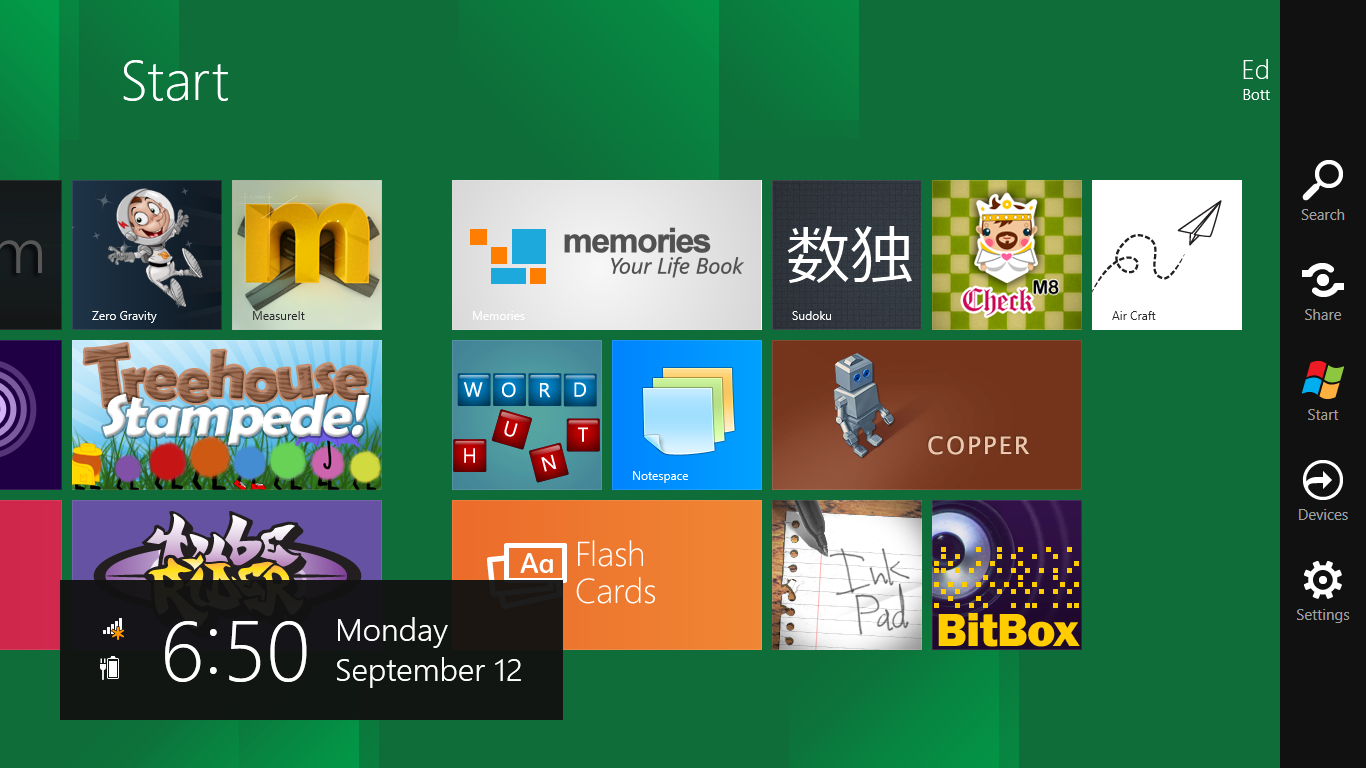How will Windows 8 tablets stack up to the competition of the future?


The geek in me can't wait to play with Windows 8, and MIcrosoft realized that would be the case and has already put the developer's preview up for grabs. I have a rare Windows 7 slate so I am certainly going to grab the Windows 8 preview and give it a spin when I have some free time.
As exciting as the new version of Windows is compared to Windows 7, it doesn't seem real to me yet. I don't think we'll see real tablets running Windows 8 for well over a year, so it's largely just good intentions at this point. The competition in the tablet space already has a lead of a few years on Microsoft, and that lead will be even bigger when Windows 8 hits the market.
The tablet space isn't going to sit still and wait for Windows 8 to get released. The iPad will be well into version 3 (or 4) by then, and Android will be into Jelly Bean (or beyond). The race has already started and Windows 8 is being lapped as we speak.
The demos shown of Windows 8 today on the developer's Samsung tablet leave a lot of questions unanswered about how it stacks up against current tablet competition in crucial areas, much less how it will compare at launch time against tablets of the future.
Even though Microsoft is working on a version of Windows 8 that runs on real tablet hardware (ARM), so far we've only seen it running on Intel hardware. That is not going to compare with either Android or the iPad as far as battery life is concerned. The instant-on nature of non-Intel hardware is also a big deal in the tablet space.
The biggest unanswered question about Windows 8 is that of apps. Legacy Windows apps may run on Windows 8 tablets, but they will not compare to other mobile platforms. An entirely new library of touch apps must be written for Windows 8, and that means getting a lot of development under way now. Unfortunately for developers it is so early in the cycle that building good apps requires hitting a moving target.
There will be no grace period after Windows 8 eventually launches to come up with apps to make it useful. There must be a decent library of good apps ready to go on launch day to make a good showing. The tablet space is not one that will let Microsoft have an iteration or two to get things right.
Don't forget that tablet hardware is getting better and cheaper all the time. If Windows 8 requires beefier hardware than the competition things will get ugly really fast. Plus it is not clear if Intel-based hardware can be priced competitively, all other issues aside.
Many will say it's early and Microsoft gets a mulligan because it's so early in the development of Windows 8. That's the problem. The tablet space evolves at a rapid pace, and typical OS development cycles don't work. It is impossible to tell what might be required to compete a year or more in the future, but that's what we must do to consider Microsoft's efforts.
Some will say that Windows 8 is more than just a tablet OS, and they are correct. I am focusing on that aspect of it because it is clear the tablet functionality is driving the lion's share of the development effort, so Microsoft has acknowledged the importance of it. I agree with that decision, and it validates why zooming in on how it will compete in this area is a legitimate thing to do.
Windows 8 looks really sharp and refreshing; it is understandable that we are enthusiastic about what we see. But don't forget, a refreshing interface hasn't helped Windows Phone 7 in the smartphone race. It may not be enough to help Windows 8, either.
There are so many unknowns about Windows 8 that it is impossible to tell how it will do in the race. The problem is the race is already in the latter stages, and is ongoing right now. Microsoft may think the race is a marathon, but it is in full sprint mode already. What we've seen today of Windows 8 looks really nice and it may be a contender, but it's so far in the future it's too early to call.
Related:
- Microsoft to developers: Metro is your future
- Microsoft's Windows 8: Here's what we now know (and don't)
- Windows 8 unveiled
- Where am I working right now? Thanks to mobile tech you cannot tell
- My dream tablet will likely have a Windows sticker on it
- Intel promises Ultrabooks will become Tablet PCs
- The frustrating experience that is Android Honeycomb on tablets